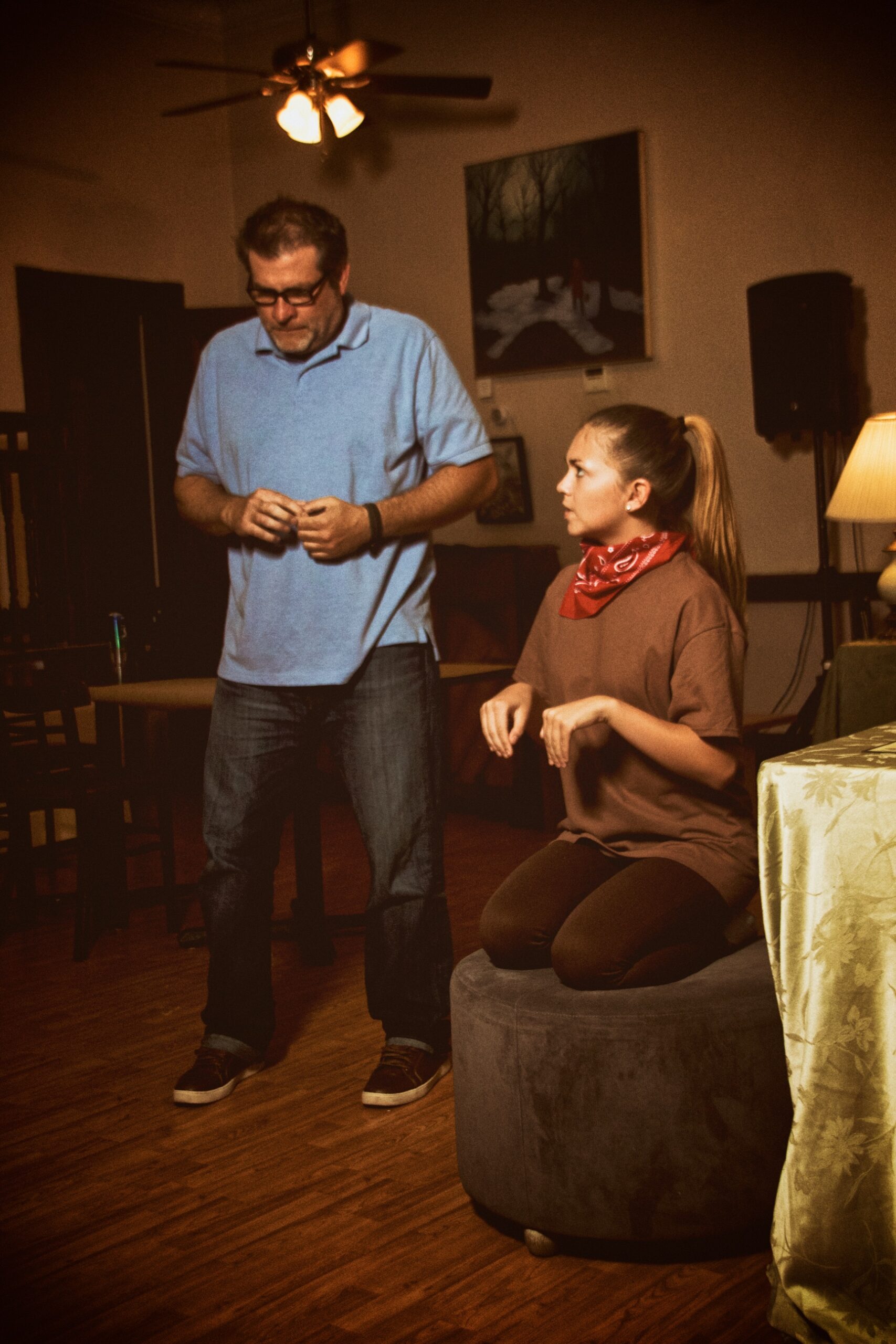Pets – our faithful companions – serve as our attentive counterparts who listen to human conversation without interruption.
Pets offer emotional support and contribute to a unique friendship dynamic separate from the reassurance that is offered from human relationships.
The difference? Animals can not talk back.
One of the contrasts among humans and animals is their inability to communicate and withhold a cohesive discussion. Because the the wiring of both the human brain and the animal brain is phenomenally divergent, in certain aspects, animals and humans are not equipped to comprehend language as humans naturally can with one another, of course.
But what would happen if our pets did begin striking up casual conversations with us, the humans?
On July 14, the La Strada Ensemble Theatre showcased its production, “Pets (and Their Humans) at the Jersey Shore Performing Arts Center in Ocean Grove.
An emotional comedy written by New Jersey playwright, Mike Sockol, featured a talented local cast who performed for an intimate audience. Pets (and Their Humans) featured Doug Bollinger, Neptune; Kyle Kimmel, Forked River; Mackenize Klein, Whiting; Payton Klein, Whiting; Izzy Mizell, Jackson; Alexandria Pascucci, East Hanover; Melissa Pascucci, East Hanover; and Rebecca Wycoff, Jackson.
In a statement, Sockol said, “I’ve always been fascinated by the ‘human qualities’ within our pets. Their intelligence, their empathy, and their passion make me wonder how much they know and how much they are concealing from us.”
The production followed the plot of a widowed man, Brad, who takes comfort in conversing with his fun-loving pet dog, Titina, and his unusually inquisitive (keep this in mind) cat, Mac. The widowed protagonist routinely and openly speaks with his pets about his personal life.
Although Brad is unphased by his unique ability to interact with animals, his new found love interest in the production, Stephanie, of whom he meets in a park, is entirely dumbfounded by what she insisted were glimpses of insanity on Brad’s part.
Brad, whose wife was killed by a drunk driver, appears to have not fully recovered from her death. Although Brad has began a new relationship with Stephanie, he can’t help but fall victim to subtle reminders that his wife – the love of his life – is dead. Brad’s children, Cassie and Barb, are visibly shaken by their mother’s absence, but try to allow Stephanie into their lives.
Throughout the production, Brad and Cassie, who also has the ability to speak with her pets, seek guidance and advice from Titina and Mac. Skeptic Stephanie demands Brad prove his abilities to her, asking Brad to converse with her canine, Scout, of which he is successful.
The production surrounds more of the straightforward aspects of love, loss and companionship – prior to a concluding twist that pushes the theme of the play into another realm of thinking entirely.
With little forewarning, toward the play’s conclusion, Titina and Mac admit to one another that they are actually reincarnated family members. Mac is Brad’s grandfather and Titina, of whom, is the dead mother.
“The show is not about pets. It is about family,” Sockol said in an interview following the production. “We were trying to build a philosophical and theological aspect of pets as as a recycling device for human souls.”
Although there were various subplots that intertwined with the moving parts in this production, Sockol said one of the fundamental proponents available for inspection was Brad’s notion of insanity, which proved to be unfounded.
“We wanted to get people to rethink the family structure,” Sockol said.
The philosophical notions offered early on by the feline were questionable, who would often ponder existence. This was the red flag that indicated the animals could have been (and were) a shell containing something greater – a human soul.
The pets in the production did not wear animal costumes, but rather, wore clothing and pranced around on four limbs. Humans strategically meowed or barked, and even began panting at the sight of a half-eaten sandwich.
Sockol said, “I did not want to disguise the human qualities of pets” and said he wanted to refrain from a “Disney-like” character association of the animals.
Transparency throughout the performance was a key component of memorability. Scene changes were apparent and the characters made use of the entire performance space, limiting their time on the stage itself.
A number of high-intensity moments were incorporated throughout the production that correlated well with the themes of love, death, and family. Perhaps the most impactful was a scene between Brad, Stephanie and her dog, Scout.
After Stephanie demanded Brad prove to her that he could understand animals, Brad had a disturbing conversation with Scout. Scout revealed to Brad that Stephanie abuses her, while an unconsolable Stephanie admits her faults.
Sockol said the goal was to “tap into the emotions” of those who were in attendance.
“I get particularly perverse pleasure when people cry,” Sockol said. “The audience is a critical component of the entire piece.”
The goal for Pets (and Their Humans) is to redefine the family dynamic, Sockol said, and explore the endless potential of an animal’s mind he said poses human qualities.
Sockol compared the ability to speak with animals to children who have imaginary friends. He said he wanted to explore the same component of playfulness in his script.

